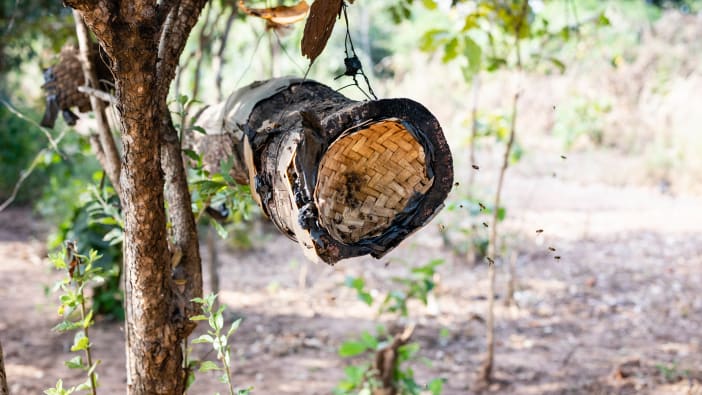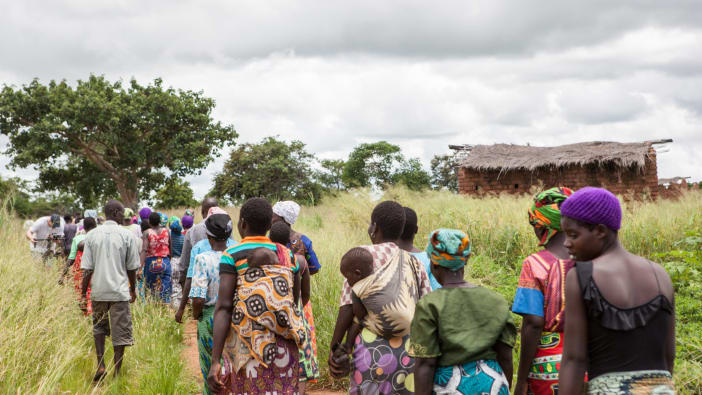Following community discussions in 1989, people in Ekwendeni identified a lack of food security as a major problem affecting the whole community, particularly during the rainy season when food can be hard to find. After a number of meetings and discussions, grain banks were established in 1992. Each bank is managed by a committee of ten local people, eight of whom are women! They receive no outside support. During harvest time, people need money in exchange for their maize. During the rainy season they need maize in exchange for money. So the revolving fund is self-sustaining. The ten banks now established are valued as great assets by their communities.
In the future the committee hopes to establish grain mills nearby to help women grind their cereals quickly and easily.
Kistone A C Mhango, Ekwendeni Hospital, PO Box 19, Ekwendeni, Malawi.








